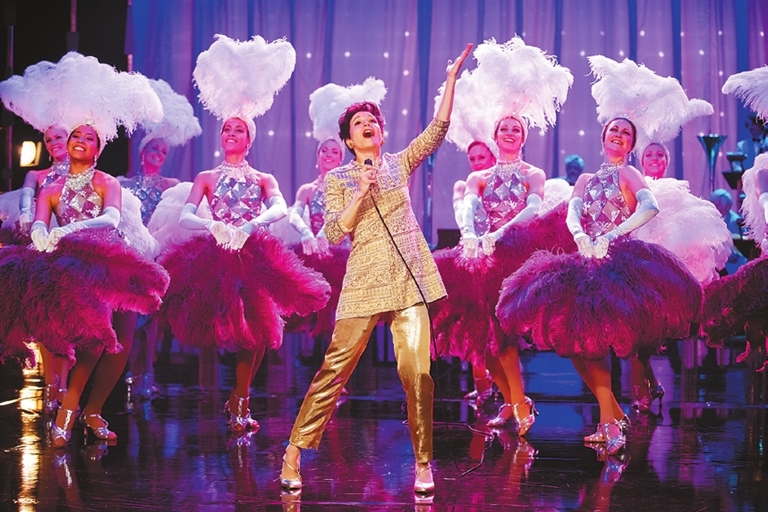

Starring: Renee Zellweger, Finn Wittrock, Jessie Buckley, Rufus Sewell, Michael Gambon, Darci Shaw, Royce Pierreson, Andy Nyman, Daniel Cerqueira, Richard Cordery Director: Rupert Goold Impersonating an icon is a dangerous business, but Renee Zellweger accomplishes the feat in “Judy,” a look at the last year in the life of Judy Garland. Since this year is the 50th anniversary of her death, an event that precipitated the Stonewall riots in the summer of 1969, the filmmakers undoubtedly recognized that they had a built-in marketing angle, in addition to the enduring appeal of Garland’s name and music. This is not the first biopic about Garland. Judy Davis gave an extraordinary interpretation in a TV miniseries almost two decades ago, but in that case, Davis lip-synced to Garland’s original recordings. Since Judy takes place during Garland’s final London performances in the winter of 1968, when her voice was not at its best, Zellweger performed the songs herself, and she does a remarkable job without trying to match Garland at the peak of her vocal powers. The film actually begins with a younger Judy (played by Darci Shaw) on the set of “The Wizard of Oz.” This opening scene is visually striking, but it starts the film on the wrong note. Tom Edge’s script then moves forward to the older Judy, caught in a morass of financial problems as well as a custody battle with ex-husband Sid Luft (Rufus Sewell). It is her financial desperation that leads her to jump at the offer for a series of concerts at a London supper club, and although her dependence on booze and pills makes this an iffy venture for a performer long past her prime, Judy does achieve some victories in her last attempt at a comeback. She also gets involved with a younger man, Mickey Deans (Finn Wittrock), who became her fifth husband. Judy is based on a play by Peter Quilter, which focused on those final months of Garland’s career. In a misguided effort to make the material more cinematic, and perhaps as a nod to the current fad of nonlinear storytelling, the film interrupts the compelling narrative with flashbacks to Garland’s days on the MGM lot, when Louis B. Mayer and his cohorts got her hooked on pills and robbed her of her childhood. One problem with these flashbacks is that they tell us what almost everyone knows about the beginnings of Garland’s drug addiction. Besides that, actors who are cast as Mayer, Mickey Rooney and others provide very superficial characterizations. We really could have learned everything pertinent about Garland’s past without injecting these flaccid flashbacks. There was a time when filmmakers recognized the dramatic power of implying the past by etching a character’s present life with force and insight. Judy is three-quarters of a good movie that would have been even better if it trusted the urgency of the last act of Garland’s life — and the brilliance of Zellweger’s performance. The actress looks uncannily like Garland while always remaining Renee Zellweger as well. She captures sides of Garland’s personality that not everyone acknowledges, particularly her self-deprecating sense of humor. When Deans meets her at a party, he makes a fawning comment about “the greatest entertainer in the world,” and Garland surveys the room and asks, “Is Frank Sinatra here?” In other scenes of the singer in a state of disheveled disarray, Zellweger tells us everything we need to know about Judy’s damaged past — without any flashbacks. Then there are the musical performances, which are nothing short of extraordinary. Zellweger’s rendition of one of Garland’s classics, “I’ll Go My Way by Myself,” is a breathtaking tour de force, and the actress is equally electrifying when she sings “Come Rain or Come Shine.” Her final performance of “Over the Rainbow,” of course, cannot compare to the Garland original in “The Wizard of Oz,” but the aging Garland, her voice hoarse and broken, acknowledges that the audience will have to forgive her. This final sequence ends on an overly sentimental note, when the audience at the supper club stands to help her complete the song. Goold is known primarily as a theater director; he was nominated for a Tony this year for his direction of “Ink,” a play about the rise of Rupert Murdoch and tabloid journalism. He sometimes tries a little too hard to make the material cinematic, but he certainly works beautifully with Zellweger, who brings off a bravura performance that even the notoriously sharp-witted Garland would have applauded.(SD-Agencies) | 
